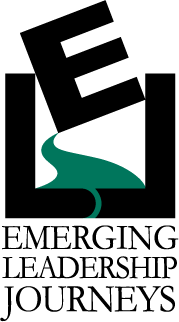| CURRENT ISSUE | |||||
Volume 1 | April 2008 | ISSN 1941-4684 |
|||||
|
Transformational Leadership: The Impact on Organizational and Personal Outcomes Transformational leaders inspire followers to accomplish more by concentrating on the follower’s values and helping the follower align these values with the values of the organization. The purpose of this literature review is to investigate the impact of the transformational leadership style on organizational outcomes and the personal outcomes of the follower. This review examines the following organizational outcomes: organizational citizenship behavior/performance, organizational culture, and organizational vision. The review also explores the following personal outcomes of the follower: empowerment, job satisfaction, commitment, trust, self-efficacy beliefs, and motivation. By understanding the impact of transformational leadership on these outcomes, transformational leaders can influence employee behavior so that the behavior has a positive impact on the organization. | article pdf | Acts 2: Spirit-Empowered Leadership
John P. Smith, II Acts 2:1-47 provides a snapshot of the Early Church on the Day of Pentecost; a day that ushers in the promised baptism in the Spirit, also known as the great outpouring of the Holy Spirit upon the disciples according to the promise of power for mission (Acts 1:8). This paper utilizes intertexture analysis in socio-rhetorical genre in order to present Luke’s perspective in the Acts of the Apostles as it relates to divine empowerment of leaders. The elements of intertexture analysis include oral-scribal intertexture, historical intertexture, social intertexture, and cultural intertexture. This paper examines how these elements are applied in Acts 2 to formulate a model of Spirit-empowered leadership. Contemporary social and cultural theories of leadership are presented in order to integrate a contemporary leadership understanding with the Spirit-empowered leadership found in Acts 2. | article pdf | Metaphor: A Multifaceted Literary Device used by Morgan and Weick to Describe Organizations
Robert B. Van Engen The research in this paper gives a description of a metaphor as multifaceted. The metaphor’s many sides create complexity, give clarity, provide validity, and develop creativity. Metaphor is a valuable tool that gives dimension to language. The depth affects the physical, mental, emotional, and spiritual aspects of human existence. Metaphor has value as a descriptive tool, also. It adds color and expands language. Morgan and Weick described metaphor as important and beneficial in detailing organizations and defining organizing theories. The size of the organization limits metaphorical practice. Organizational culture illustrated by metaphor aids organizational members in understanding the organization’s history. | article pdf | Follower-Focused Leadership: Effect of Follower Self-Concepts and Self-Determination on Organizational Citizenship Behavior
Michelle Vondey The purpose of this study is to suggest a model that advances the discussion of follower-centered leadership and the effect that follower self-concepts and self-determination have on follower organizational citizenship behavior. The framework for this study is transformational and transactional leadership theories and shows that although these leadership theories do influence follower behavior, they do so via substantial follower involvement. Followers constitute the complementary side of leadership studies because without followers there is no leader-follower relationship. The proposed model represents an attempt to put the primary responsibility for organizational citizenship behavior on the follower while still recognizing that leadership style does manifest some influence. | article pdf | An Alternative Method to Investigate Organizational Effectiveness: An Adaptation and Expansion of Robert Terry’s Model
G. R. Bud West In this study, I present a theoretical model developed by Robert Terry as an alternative resource to traditional methods for analyzing organization effectiveness. The model consists of the constructs of mission, power, structure, and resources. These categories permeate the current literature, as researchers have tied each of them individually to organizational effectiveness. Terry broadened some of the definitions, and I explain and adapt his somewhat different arrangement of power as a mediator between mission and structure, where traditional models have typically implied structure as the mediator. These differences offer not only a different approach, but also a fuller description of some techniques that can result in enhancing organization effectiveness. | article pdf | |
|
Welcome from the Dean Welcome to the new Emerging Leadership Journeys (ELJ) journal. We believe that students in their first four terms of study have something of value to offer the leadership academy and have produced the ELJ as a logical outcome of this belief. Dr. Bocarnea has demonstrated support and consideration for students beginning their doctoral studies, and I am pleased that he is heading up this new journal. |
||
From the Editor |
School of Business & Leadership | 1000 Regent University Drive | Virginia Beach, VA 23464 | 757.352.4550 |
